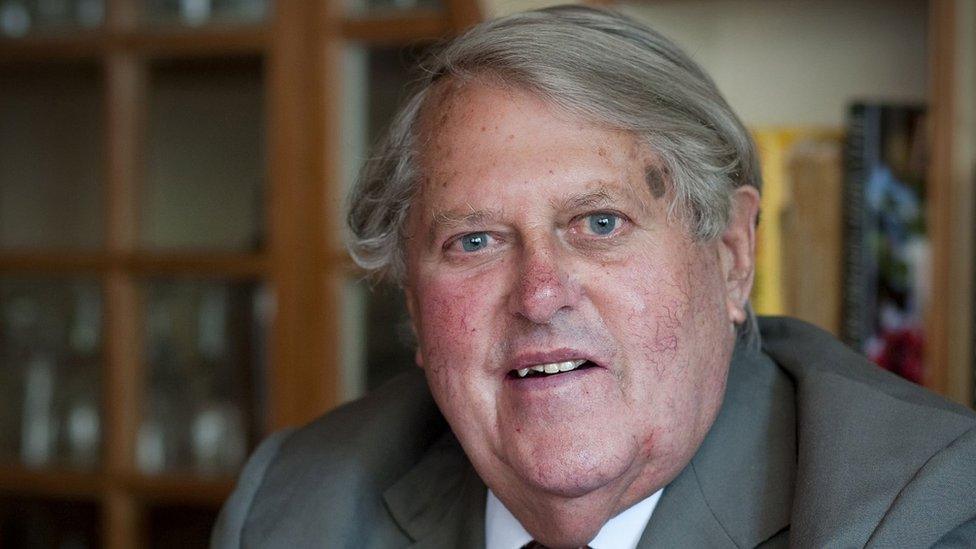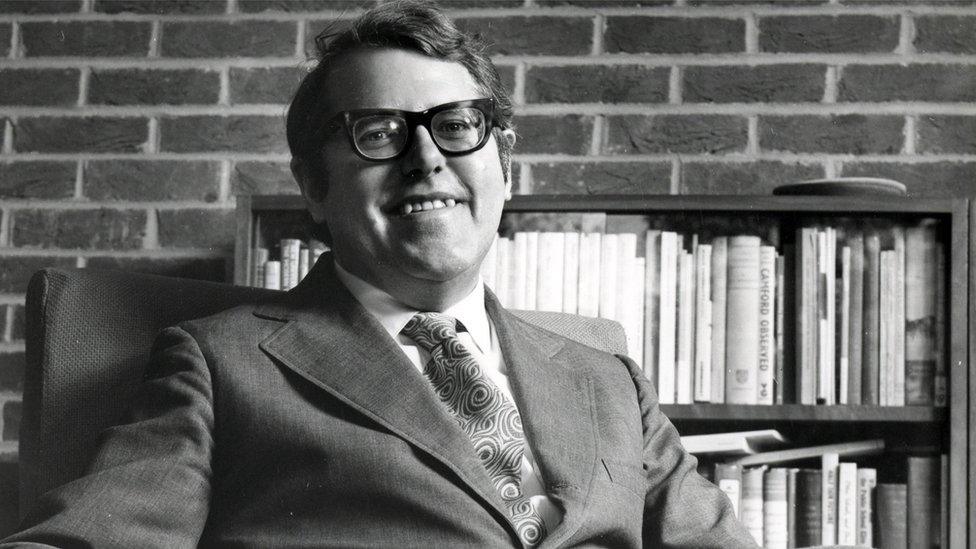Historian Lord Asa Briggs dies, aged 94
- Published

Lord Asa Briggs, a leading historian and pioneer of adult education, has died at the age of 94.
He had an "extraordinary life" and died peacefully at home in Lewes, East Sussex, son-in-law Philip Preston said.
Lord Briggs worked at the Bletchley Park code-breaking station during World War Two, and later helped establish the Open University and Sussex University.
Sussex's vice-chancellor, Prof Michael Farthing, called Lord Briggs a "visionary and a dear friend".
Prof Farthing, who was with Lord Briggs and his family when he died, said he would "miss him terribly".
"He had a huge breadth in his life and he contributed to an enormous number of different universities, different ideas to his discipline of history, and on a much wider scale to higher education in general," he said.

Lord Briggs during his time as vice chancellor of Sussex University between 1967 and 1976
Lord Briggs, who was born in Keighley, Yorkshire, and attended Cambridge University, received a call in 1943 to join British intelligence at Bletchley Park - the base from which Germany's Enigma code was deciphered.
After the war he returned to his academic interests, becoming an expert in the Victorian period and writing several books during a career at universities including Oxford and Princeton.
His five volumes on the history of broadcasting in the UK was often described as the unofficial history of the BBC.
BBC director general Tony Hall said Lord Briggs's "great gift to the BBC was the insightful and illuminating histories he wrote about the corporation, which set the highest bar for all media histories to follow".
The vice-chancellor of the Open University, Peter Horrocks, said Lord Briggs was a "towering figure in education, influencing the development of new universities in Britain and abroad".
Lord Briggs was made a life peer in 1976 and sat as a crossbencher.
He leaves a wife, two sons, two daughters and 14 grandchildren.